Fishing Conditions
As we trolled closer to our GPS coordinate, my fishing partner exclaimed, “Hey look, I think there’s another boat in front of us!” Sure enough, another boat with a lone musky angler faded into view, trolling our intended location.
Nobody in their right mind would be out in those conditions without a good reason. We had a good reason. We all knew that these conditions spelled migrating muskies and we had a small window of opportunity to witness the event.
Are musky chasers really crazy? Find out why we do what we do in The Psychology of Musky Fishing.
eBook available in the MuskyMarket
The Reasoning
Muskies overwinter in areas within relatively close proximity to where they’ll spawn in the spring. They have been known to migrate long distances to reach those areas and, if you’re lucky enough to know where their travel routes are, you can intercept and catch the heaviest fish of the season.
But this doesn’t really answer the question yet.
Why is it so important to catch the biggest fish in the lake at this time? There are a few reasons, one of them crazy, one of them not-so-crazy.
Reason #1
The most popular motivation is simple; bragging rights. It’s a chest-beating event for some of the guys out there chasing giants. It’s becoming a sport for tough guys with huge egos and the more you endure, the tougher you are.
Reason #2
There is however another lesser motivation for doing what we do. I classify myself in this next category as I consider myself more of a biologist. I’ve always been fascinated with the muskellunge as a species at the top of the food chain. They are indeed one of the largest predatory fish we have in our Northern waters, lake trout and king salmon not withstanding.
They represent the most unbridled fish behaviour because of their sheer size and feeding habits. I personally have a burning desire to know just how big these fish can actually get on my lake.
Of course I’d love to be the one to catch the next monster and inflate my own ego but I’m happy if the boat next to us gets the job done too, and honestly, it could happen to anybody out there who knows even a little about muskies and their timed migration.
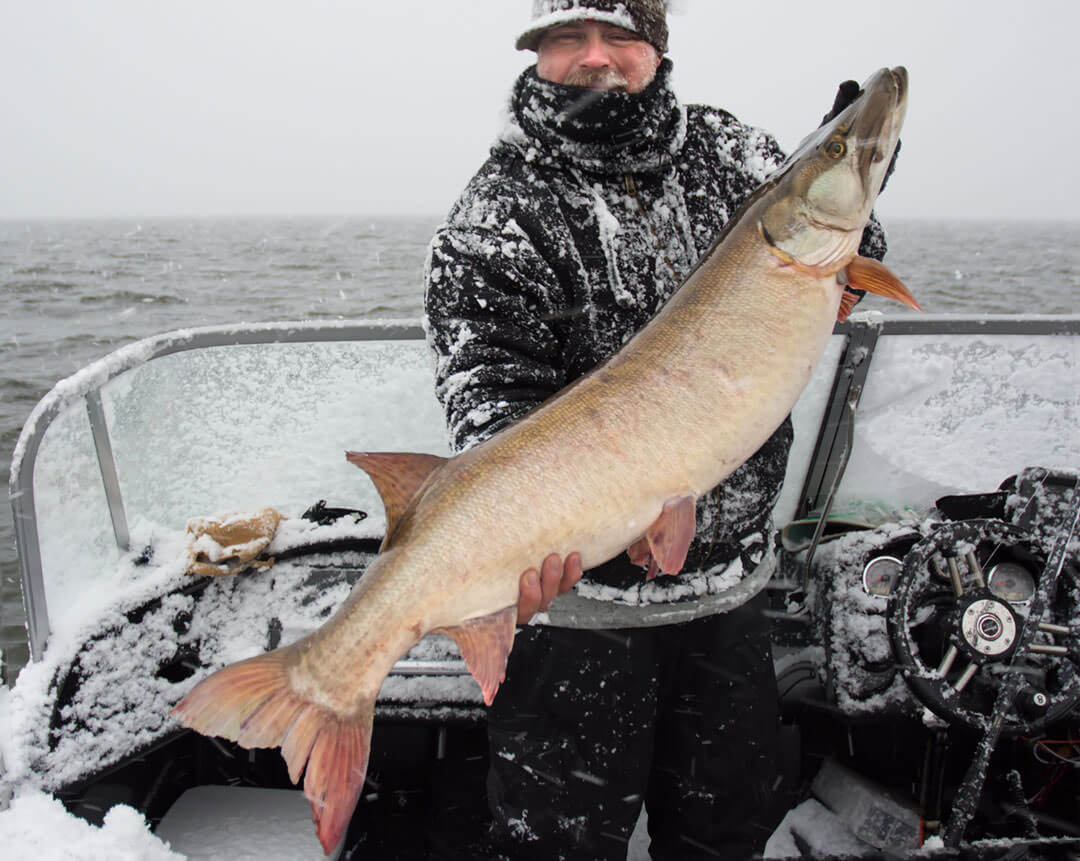
Chris Roadhouse and I brave November snow in search of the season's last big heavy.
Photograph by Nipissing Muskies
Muskies on the Move
When muskies travel, they are actively feeding along the way. As a matter of fact, they never really stop feeding for the length of their journey which is why they reach such bloated proportions.
Generally, it was thought that the month of October harbored the heaviest muskies because of water temperature relative to the musky’s metabolism. But the past few seasons have been affected by global warming trends and November has become the new October.
You see, the colder the water gets, the slower and more docile are the movements of large muskies. November temperatures fall into the right margin where muskies still have enough mobility to chase prey but are signalled by the temperatures to feed heavily before the lake freezes.
By the time the water temps reach 40 degrees Fahrenheit, the muskies have usually reached their destination. They will still feed but their movements are minimal. When the lake freezes, they’ll become virtually dormant.
For more tips, read our Cold Weather Fishing Tips article.
Break the Ice
So why do these crazy musky fishermen still ‘break shoreline ice’ to get out there?
The reason is that muskies in natural lakes use the remaining open water wind induced currents to feed. Big muskies are lazy and they prefer their meal to be ‘delivered to them on a silver platter.”
A rock ledge or hump can act as a dinner table and the wind is the waiter, carrying the suspended baitfish over the musky waiting at that dinner table.
When the lake freezes and the wind induced current stops, the restaurant is closed for the season and the muskies spend the winter sitting on the bottom digesting their bloated stomach contents while nurturing eggs to be laid the following spring.
So for avid musky chasers, just before the lake freezes over and the wind stops, the chase is on for that last big heavy.
Tips for the Season
If you plan to be one of the crazy ones out there, remember to be safe. An accidental fall into cold water can take your breath away and drown you in a heartbeat! Wear a floater suit or other gear made for the conditions.
Photographs by Nipissing Muskies
I also like to hand-hold a rod and pump it with a stop and go motion. The Pump gets the fish’s attention while the pause or drop-back gives them a chance to catch up and take the bait.
Secondly, big muskies are…big! A 40 to 50-pound fish can straighten a hook out if you pull too hard. Fight the fish gently while always keeping a bend in your rod. Read your line counter out loud to your net man while reeling in the fish to give him warning about when to act.
Finally, it’s important to understand that it takes a ‘team’ to catch a trophy musky. Everyone in the boat has a vital job to do when that reel screams. Clear rods, steer the boat, do whatever it takes to get that fish in the boat.
Are Musky Chasers Really Crazy?
So to answer the question: are musky chasers really crazy? Yes, I'd classify us as a bit crazy. But it can create an adventure of a lifetime!
What’s your take? Are musky chasers really crazy? Sound off in the comments below!

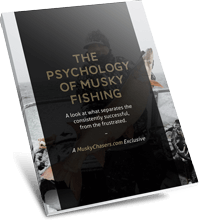
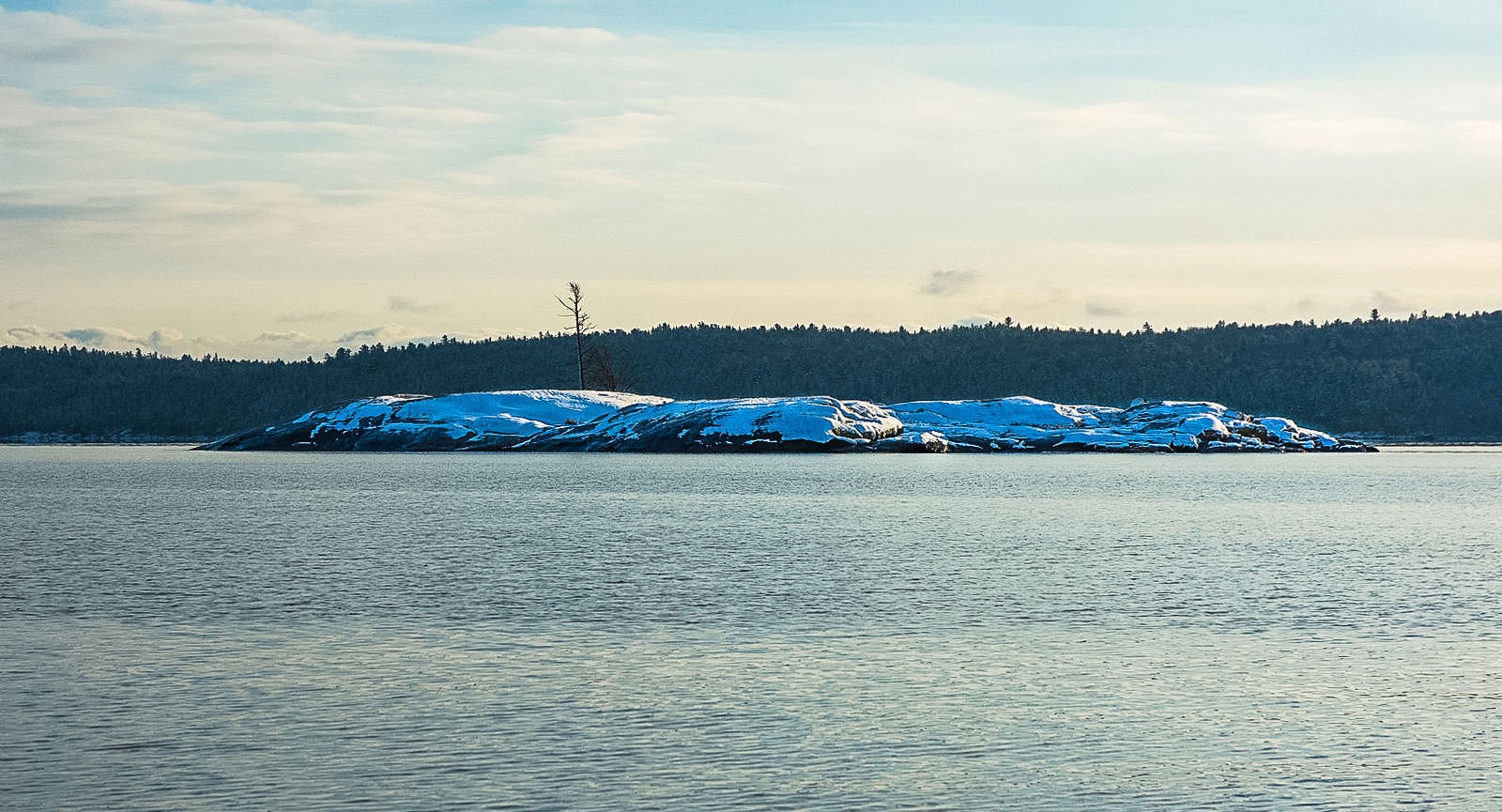

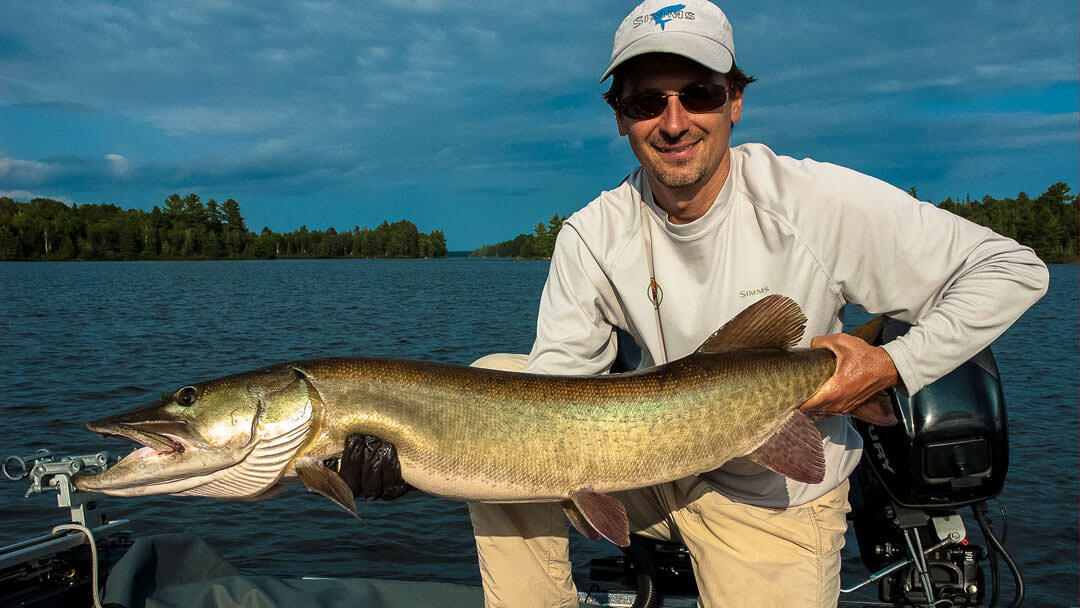
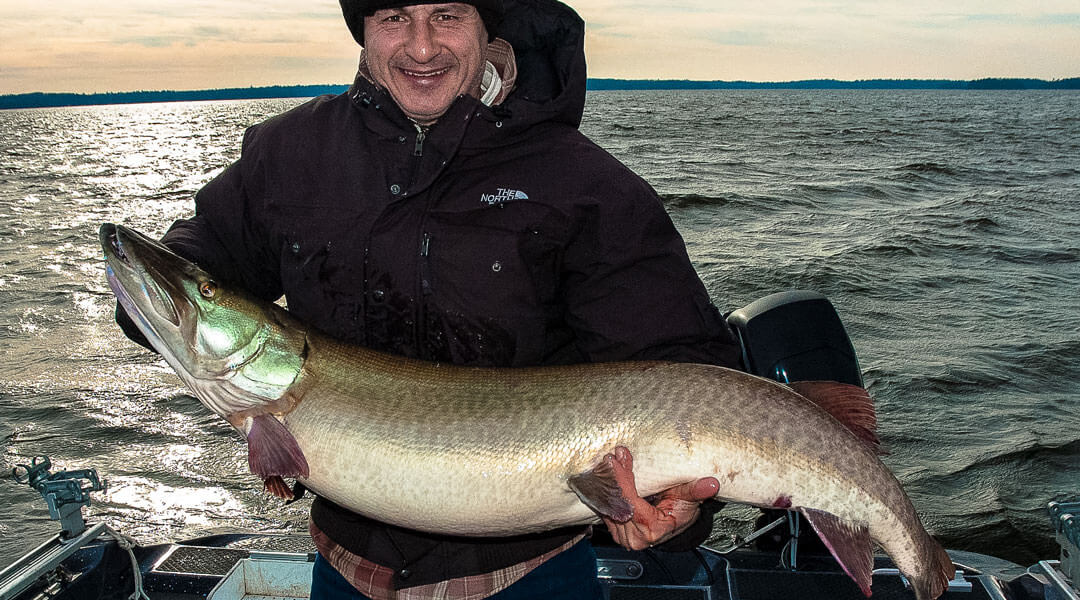
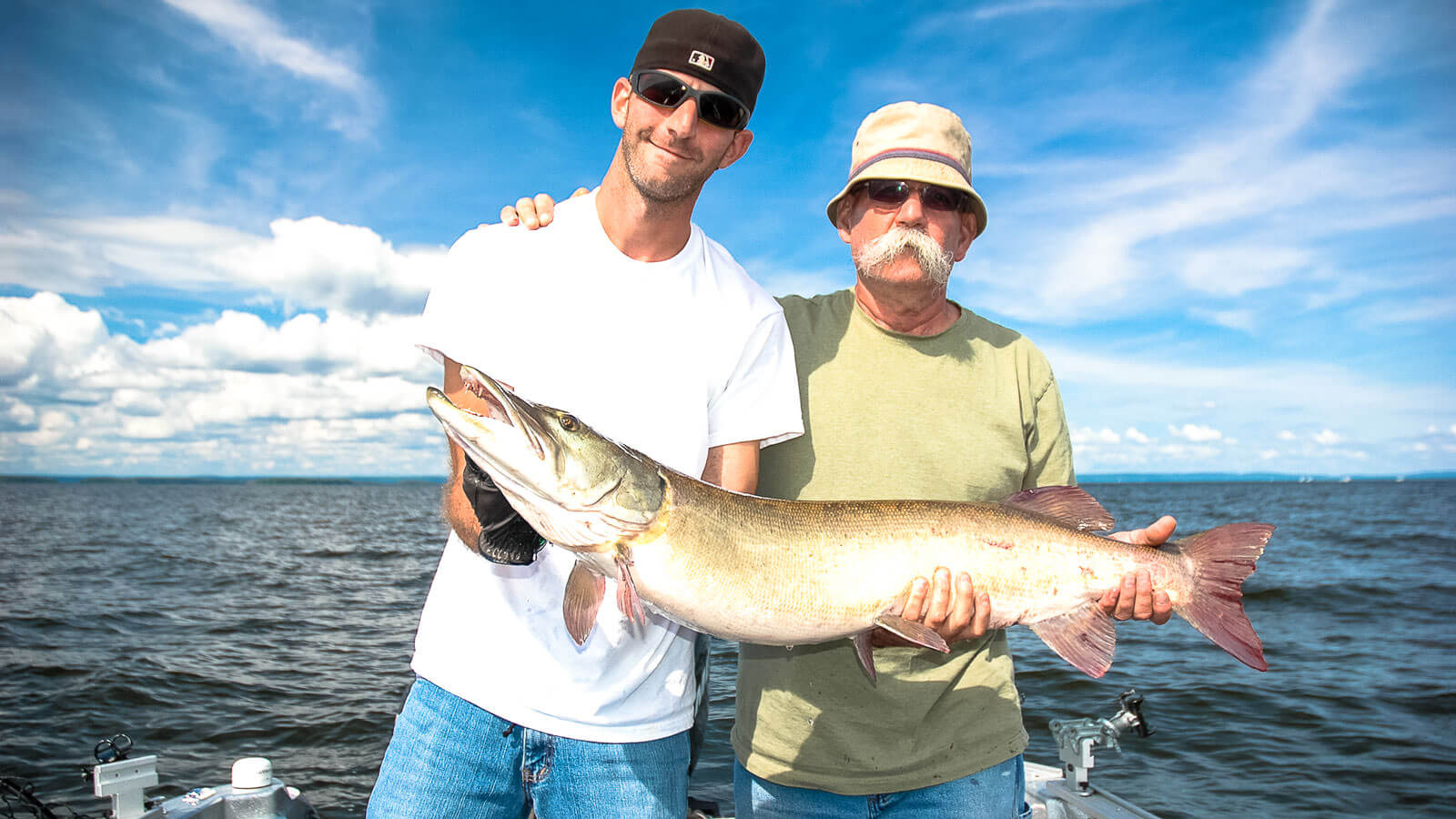
Can someone contact me about an order I placed on 12-16 I didn’t get the whole order.
My number is 630-7xx-6xxx email is xx022@yahoo.com. [Contact info removed for privacy – admin]
Good day Frank – thanks for reaching out! I personally checked in with the vendor for the other item in your order and rest assured it has been shipped. In fact, tracking shows it arrived a few days ago! Unfortunately there was a delay in shipping as he was out of town leading up to the holiday season and couldn’t get your order out the door as soon as he would have liked. I trust you have everything you need; sincere apologies for the delay on that 2nd bit. Happy New Year!